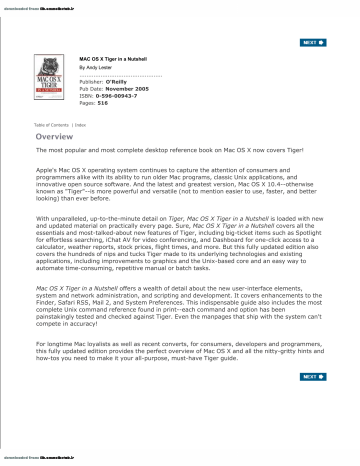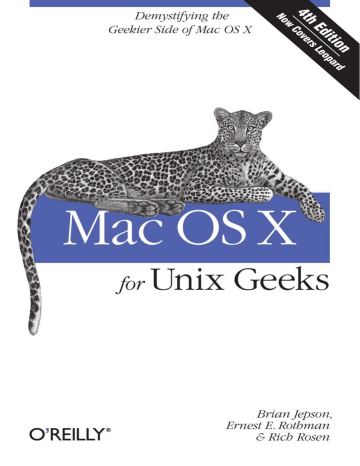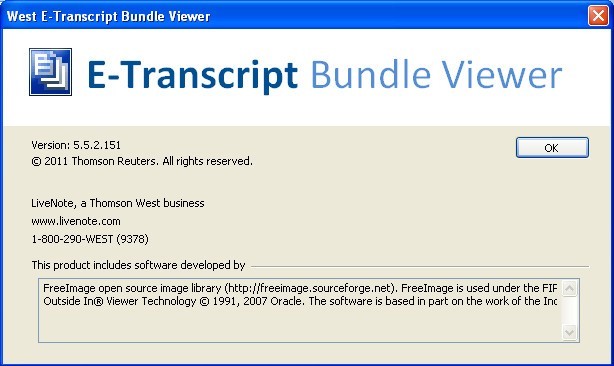

- #E transcript bundle viewer for mac install
- #E transcript bundle viewer for mac upgrade
- #E transcript bundle viewer for mac software
- #E transcript bundle viewer for mac windows
#E transcript bundle viewer for mac windows
PowerShell for Windows Discovery in Orlando or changing default Java Garbage CollectionĪs a result, there is no one size requirement that fits for all MID Server deployments. Architectural and design enhancements over ServiceNow releases.The number and nature of other applications running on MID Server host.The number of MID Servers installed on the host.

The size of the customer infrastructure and specific function (Capability) MID Server.MID Server performance and system requirement are driven my multiple factors including but Some applications, such as Health Log Analytics, have additional system requirements Products you use that require a MID Server. System requirements for your instance are determined by the needs of the individual Product is greater than 1 GB, see Set the MID Server JVM memory sizeįor the procedure to override the default setting. The MID Server installs with 1 GB of JVM memory.
#E transcript bundle viewer for mac software
The MID Server installer includes the Tanuki Software Java Service Wrapper, version 3.5.40. If the ServiceNow® instance is downgraded from Rome, then the MID Server is also downgraded. Glibc.i686 MID Server JRE downgrade support
#E transcript bundle viewer for mac install
The installation command for CentOS is: yum install OnĦ4-bit Linux systems, you must install the 32-bit GNU C Note: Linux MID Servers require glibC version 2.17.
#E transcript bundle viewer for mac upgrade
Upgrade the JRE to a different version, then coordinate with the appropriate account Testing showed that the MID Server works asĮxpected with Oracle Java 11 version 11.0.11. Lower version than 11.0.8, you may see encryption related issues. The MID Server requiresĪ minimum JRE version 11.0.8, and the recommended version is 11.0.9_1. For the best performance, install the 64-bit MID Server for your operating system. This version supports bothĦ4-bit Windows MID Servers and 64-bit Linux MID Servers. The installer automatically configures Java 11 to run The MID Server installer package and is installed on the host for all new The PowerShell version is listed as PSVersion. Alternatively, you can find the PowerShell version on the host machineīy using the command $Host.Version in the host's PowerShell console. Then sort the list of MID Servers by their PowerShell version to find List gear icon, add Host PowerShell Version to the To find your current PowerShell version using the instance, go toĮcc_agent_list.do. The MID Server requires the minimum PowerShell version 3.0 and supports versions up to Resolutions, see the HI Knowledge Base article. You may need to change yourįirewall permissions so the OCSP traffic to go through properly. Firewalls and proxy configurations may block calls to the OCSPĮntrust server, which prevents the MID Server from working. Website’s certificate must always be checked by clients regardless of its expiry date.Ĭlients fail a connection when they can’t check the revocation status of a certificate. While SSL/TLS certificates are always issued with an expiration date, there are certainĬircumstances in which a certificate must be revoked before it expires (for example, if itsĪssociated private key may have been compromised). In order to connect, the MID Server requires access to: The OCSP responder’s response to theĬlient indicates whether the certificate is valid or has been revoked. The client sends a request to an OCSP responder: a server operated by theĬertificate authority (CA) that issued the certificate. OCSP works by using a client, such as a MID Server, to receive a certificate from an HTTP The MID Server needs to determine if the certificate has been revoked and shouldn't be
/ptx-files-58ee2f335f9b582c4d925cce.png)
When certificates are exchanged and validated, Revocation status of SSL/TLS certificates. The Online Certificate Status Protocol (OCSP) is the protocol used to determine the Self-signed certificate or a certificate signed by an internal CA, please import theįor more information on adding SSL certificates, see Add SSL certificates for the MID Server. If a networkĪppliance or proxy exists between the MID Server and the instance, thatĪppliance needs to present a digital certificate signed by a trusted CA. Validation on HTTPS traffic when connecting to ServiceNow®. To meet high security standards, the MID Server performs x.509 certificate For more information, see Supported platform changes for MID Server. Unsupported MID Servers auto-upgrading to Rome create an issue record in MID Server

Installation are blocked through RPM and MSI installer on the following operating systems: Installations of 32-bit MID Servers or upgrades to version Rome.


 0 kommentar(er)
0 kommentar(er)
